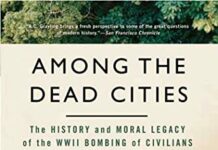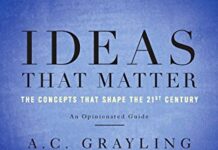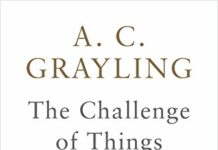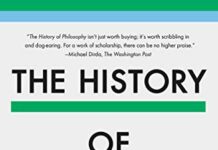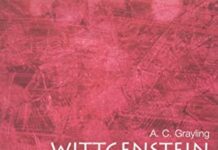
Ebook Info
- Published: 2016
- Number of pages: 369 pages
- Format: PDF
- File Size: 2.92 MB
- Authors: A. C. Grayling
Description
The Age of Genius explores the eventful intertwining of outward event and inner intellectual life to tell, in all its richness and depth, the story of the 17th century in Europe. It was a time of creativity unparalleled in history before or since, from science to the arts, from philosophy to politics. Acclaimed philosopher and historian A.C. Grayling points to three primary factors that led to the rise of vernacular (popular) languages in philosophy, theology, science, and literature; the rise of the individual as a general and not merely an aristocratic type; and the invention and application of instruments and measurement in the study of the natural world.Grayling vividly reconstructs this unprecedented era and breathes new life into the major figures of the seventeenth century intelligentsia who span literature, music, science, art, and philosophy–Shakespeare, Monteverdi, Galileo, Rembrandt, Locke, Newton, Descartes, Vermeer, Hobbes, Milton, and Cervantes, among many more. During this century, a fundamentally new way of perceiving the world emerged as reason rose to prominence over tradition, and the rights of the individual took center stage in philosophy and politics, a paradigmatic shift that would define Western thought for centuries to come.
User’s Reviews
Reviews from Amazon users which were colected at the time this book was published on the website:
⭐A fascinating overview of the seventeenth century in Europe as the century of the birth of new ideas that prepares for the eighteenth century, but, in its own way, is liberating from old ideas and shares the commonly accepted importance of the eighteenth century in setting the world on a new course, indeed: creating the modern world. But was is so fascinating about this book is the details that he reveals about so many of the facets of the seventeenth century that many of us know, but only superficially when compared to the depth ofered by Grayling. For example, he has many chapters on the Thirty Years War. Those who have studied this important war in depth will recognize all the important participants and events, but for those of us who only have a vague understanding of its importance, the many chapters devoted to it are immensely enlightening. As are the segments devoted to important figures that non-specialists may not know in any detail, like Francis Bacon or Elizabeth of Bohemia. The book is a vast panorama of the century, but it is never superficial, but pauses always to study in depth the important characters and events of the century. A brilliant, impressive work.
⭐So far this is my favorite book by A. C. Grayling of about five or six. I have lost count actually. There is a sense of humor that I appreciate in his argument that the cause of the Thirty Years War was religion and then he proceeds to show all the reasons why that wasn’t so. Of course it is part of the picture, but what seems more convincing was the will to power of various nobles in competition with one another. The first section of the book takes you through all the ins and outs of the thirty years war. Seems an awful lot like things going on in the Middle East for the last thirty years. But this sets England up to be the superpower of the day. Very interesting details on Frances Bacon, Father Mersene, and Rene Descartes.
⭐Grayling discusses the radical shift in the Western European world view that occurred in the 17th century. Since so much happened and so many great thinkers were involved the treatment is necessarily brief and barely skims the surface.We very well may be on the cusp of another such shift in my opinion.
⭐It’s a familiar puzzle: do ideas shape society or are ideas the product of society? Without laying down the law about it, Mr Grayling favours the first view, one feels, and it is encouraging and refreshing to read it argued so persuasively. After a couple of centuries of Marxist/Freudian thinking, we need to believe in our autonomy again.That’s in addition to the main argument that the Seventeenth Century saw the birth of the modern mind or at least its wonderful liberation, in the coming of the scientific method, from centuries of dogmatised thinking.We need more of this today and I’d read it if I were you.
⭐This book is a treasure and it is prerequisite to understanding fully the enlightenment. The lessons here for our troubled times are important, in view of the renewal of calls for authoritarianism and superstition as a foundation for our polity.
⭐As I started reading this book, I was enthralled. For the first time I felt that I was gaining some understanding of the history of Medieval Europe, and some of the reasons for its current difficulties in uniting. While the writing style is not American–the author is professor in England–I found it quite enjoyable. But then the tale degenerated (for me) into a discussion of the relative merits of Hobbes and Locke, with a few others, notably Spinoza, thrown in. I am sure this could be interesting to many. It wasn’t what I was looking for, and finally led me, somewhat past the half way point, to put it aside. Perhaps to read at some later date. Perhaps never again.
⭐Beautifully written. Imparting the author’s thesis from an inclusive understanding of his subject century . Stating boldly the antipathy and the destructive energies of the “true believers” faith based paranoia. Especially enlightening narrative in the context of the stunning results of contemporary a stronomical exploration…..if. you consuming up the courage, click ” the age of genius ” on your fire screen,The
⭐I’m still in the middle of this. The 30 years war is always confusing, given the number of players and their shifting alliances, loyalties and sometimes religions. But Grayling makes this compelling. The small bits about what’s happening in the rest of the world while Catholics and Protestant Lutherans and Protestant Calvinists are savaging each other are really helpful for historical context. We tend to think of history of Europe as entirely European. But events in the New World and China have impact as well.
⭐This is an interesting read and useful contribution by a distinguisged academic in the history of ideas, but there was some poor editing overlooking some silly mistakes; one example is that Queen Mary II is described early on in the book as the sister of King James II when in fact she was his daughter, and James described as the son of King Charles II when in fact they were brothers. The book gets it right later on, but stupid errors like this doesn’t inspire confidence that the author is on top of his subject.
⭐AC Grayling is always thought-provoking, erudite and “entertaining”; this book is no exception. His perspective on the seventeenth century and his host of supportive evidence is very engaging.
⭐I usually enjoy A C Graylings stuff but I found this disappointing. Too much emphasis on the 30 years war, which I found really boring and difficult to follow.
⭐I’m a big fan of the author so his conclusion was enough for me!What precedes his conclusion however is a fascinating and enjoyable journey from the time of being told what to think (primarily by religious people in authority) to learning how to think for ourselves and to learn through observation, reason and experience.
⭐It is a readable good book on the advancement of scientific thinking and learning in the age of reason in Europe. How fanatic the clergy was! How many martyrs in the road to free thinking! There is no meaning in criticising the work as Eurocentric. Yes, it’s about the development of science and philosophy in Europe. A.C.Grayling looks at it from a historical perspective. Definitely, the world owes much to European mind for the evolution of philosophy and science, and that is beautifully explained in the book. Overall a good reading experience.However, it may not be as good as Will Durant’s works. Still the pleasure of philosophy is there.
Keywords
Free Download The Age of Genius: The Seventeenth Century and the Birth of the Modern Mind in PDF format
The Age of Genius: The Seventeenth Century and the Birth of the Modern Mind PDF Free Download
Download The Age of Genius: The Seventeenth Century and the Birth of the Modern Mind 2016 PDF Free
The Age of Genius: The Seventeenth Century and the Birth of the Modern Mind 2016 PDF Free Download
Download The Age of Genius: The Seventeenth Century and the Birth of the Modern Mind PDF
Free Download Ebook The Age of Genius: The Seventeenth Century and the Birth of the Modern Mind
